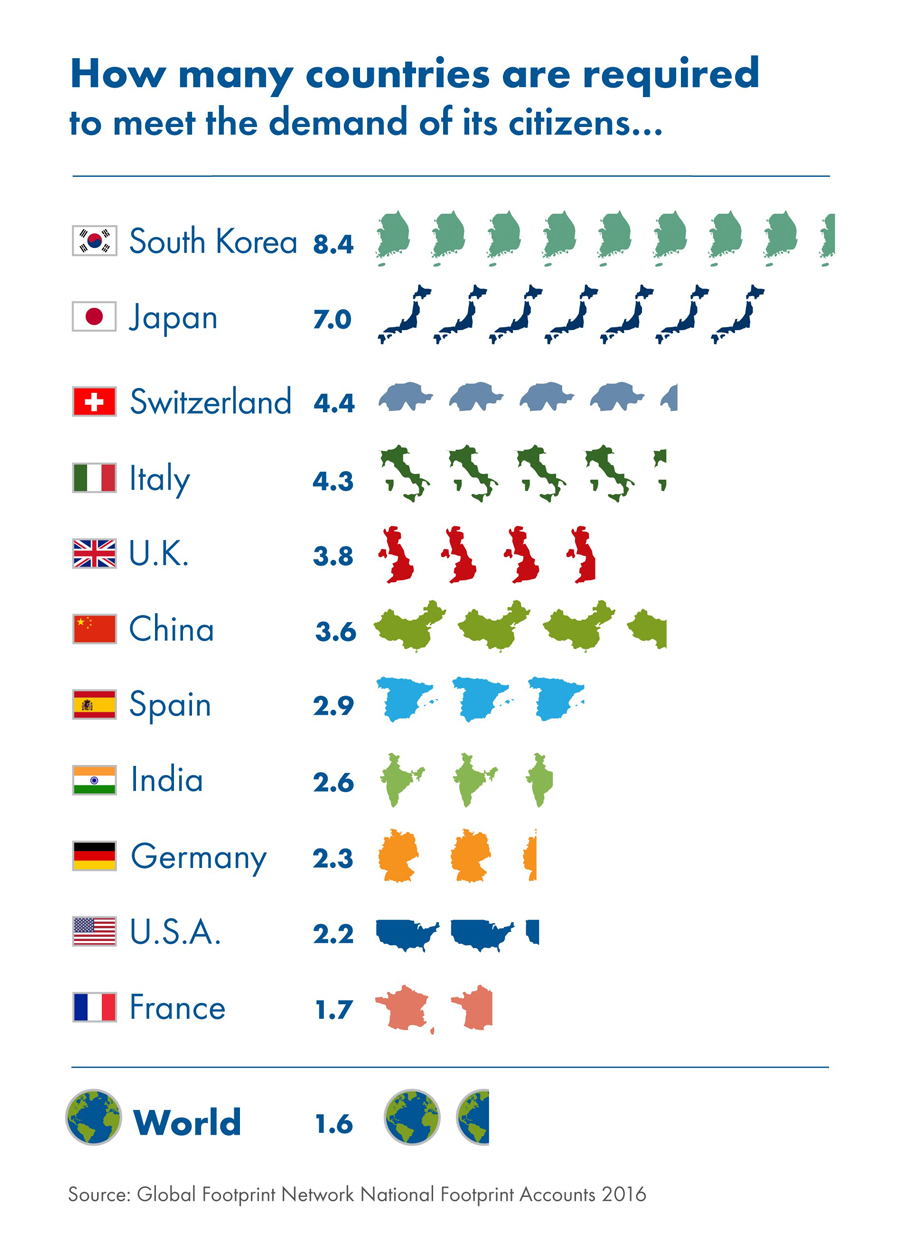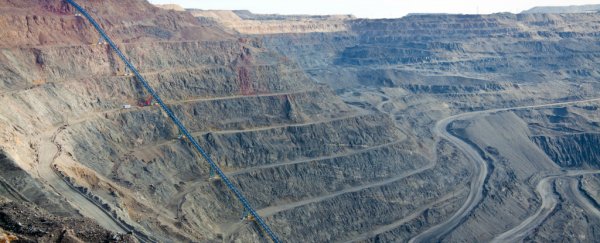As of Monday August 8, humans will have officially used up all the resources Earth can regenerate in a year.
The day is known as 'overshoot day', and this year it's happening five days earlier than in 2015 - which means we just burnt through a sustainable amount of resources in less time than ever before.
If we continue to live the way we are right now, as a global population, we would require more than 1.6 planets to meet our demands.

If everyone in the world lived like Americans, we'd need 4.8 planets to have enough to go around - Australians are even worse, using up 5.4 planets worth of resources each year.
Overshoot day is calculated by the Global Footprint Network each year, using United Nations data on thousands of economic sectors, such as fisheries, forestry, transport, and energy production.
When we talk about resources, it's not just water, land, and food - it also refers to things like carbon storage, so we've now reached a point where we're pumping more CO2 into the atmosphere than can be reabsorbed by forests and oceans.
"Carbon emissions are the fastest growing contributor to ecological overshoot, with the carbon footprint now making up 60 percent of humanity's demand on nature," a press release from the Global Footprint Network explains.
The network has calculated Earth's overshoot day dating back to the 1960s, and has shown that, up until 1970, we were only using as many resources as the planet could sustainably reproduce. In fact, in 1961, we were only using three-quarters of our annual resources.
But in 1970, we burnt through our annual resources by 23 December, and every year since then it's become earlier and earlier.
The good news is that the advancement of the date is gradually slowing down. On average, since the 1970s, Earth Overshoot Day has moved three days earlier per year, but over the past five years, it's slowed to less than one day a year.
And the even better news is that society is finally weaning itself off of fossil fuels. Last year, Costa Rica managed to power the entire country with 100 percent renewables for 75 days in a row.
Germany was powered by 95 percent renewable electricity last year, and Portugal was able to run for four straight days without any fossil fuels. In many countries, renewable energy is now cheaper than fossil fuels.
It's not just CO2 emissions that are on the decline. China has also committed to reducing its citizens' zealous meat consumption by 50 percent by 2030, which is estimated to stop the equivalent of 1 billion tonnes of CO2 emissions. And many cities are making big steps towards getting rid of single-use plastic waste.
There are still significant challenges ahead - namely the fact that Earth's population is expected to swell to 11.2 billion by the end of the century - but we're slowly, slowly reducing our toll on the planet.
Maybe next year will become the first year in more than four decades that we push that overshoot date back a few days.
